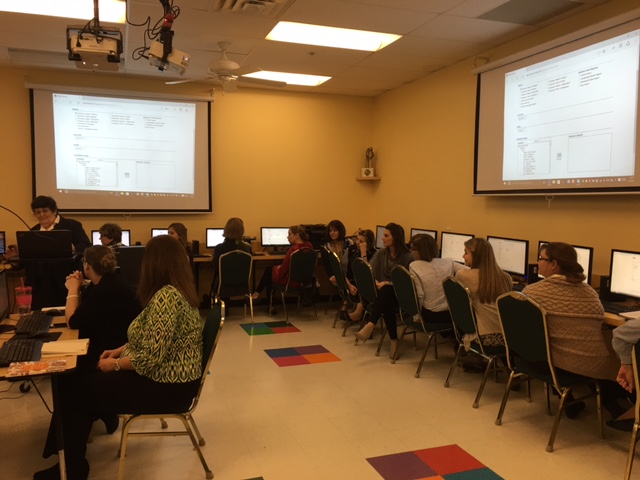This post was contributed by Pam Bernards, NCEA Director of Professional Development.

During my Catholic Schools Week visit to the Archdiocese of Philadelphia, I was treated to a wonderful professional development session for the faculty of St. Helena School provided by Sr. Edward Quinn, Assistant Superintendent of Curriculum, Instruction and Assessment. The topic: Effective Use of Student Data to Improve Student Performance. Now there are those who might say they would not be looking forward to a session on data analysis, but being a data nerd, I was very excited to hear Sister’s presentation.
Our conversation on the way to the school really set the stage. The Archdiocese has been looking at data in a significant way over the last eight years. In that time, the Catholic schools within the city of Philadelphia have seen an increase in the average scores in Reading and Math rise from the 30th percentile to the 60th percentile. Sister shared that the strategy included effective professional development on using the on-line data management system. She began with principals and not only trained them on how to use the system, but also shared tips on how they could influence the use of data in their building. She next offered to visit individual schools and provide staff development at the request of the principal. She stressed that alignment of three key elements of instructional practice: curriculum, instruction and assessment, have been key to the improvements they have seen in student performance.
Upon arriving, St. Helena’s hospitality shone through as they invited us to join them for lunch. My first Philly sub! It was delicious. After a little desert, we moved on the computer lab to explore the data! I was hooked immediately as it was a hands-on, interactive session. Each teacher had access to the data management system and could replicate what Sister Edward was demonstrating on the presentation computer. She was also able to monitor what the teachers were doing and provide assistance as needed. As Sister walked the faculty through the many reports available to them, she pointed out how they could:
• do a comparative analysis of how the students in a particular class were performing relative to groups such as the entire grade or diocese,
• drill down to determine the specific skills with which individual students were struggling and identify strategies to improve student mastery of the skill,
• use the data to conference with parents,
• look at longitudinal data to assess progress over time for a particular cohort of students as they moved from one grade to the next, and
• look at longitudinal data for a particular grade level to determine opportunities for growth of an individual teacher.
One thing that was very heartening for me was the receptiveness with which the faculty listened and explored the various reports. They exemplified the true spirit of the so many of the Catholic school teachers I have known through the years: they are there to serve the children and do what is required so that the students can be successful.